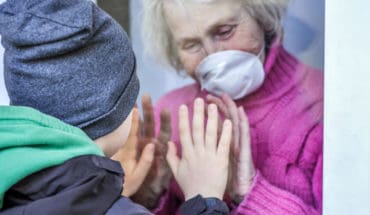WHO strongly recommends antiviral drug for patients with non-severe covid-19: A combination of nirmatrelvir and ritonavir is strongly recommended for patients at highest risk of hospital admission. WHO also makes a conditional recommendation for remdesivir in the same group of patients.
Pfizer’s oral antiviral drug (a combination of nirmatrelvir and ritonavir tablets) is strongly recommended for patients with non-severe covid-19 who are at highest risk of hospitalisation, such as unvaccinated, older, or immunosuppressed patients, with lack of vaccination as an additional risk factor to consider, says a WHO Guideline Development Group of international experts in The BMJ today.
The experts explain that nirmatrelvir/ritonavir likely represents a superior choice for these patients because it may prevent more hospitalisations than the alternatives, has fewer potential harms than the antiviral drug molnupiravir, and is easier to administer than intravenous options such as remdesivir and antibody treatments.
However, they recommend against its use in patients at lower risk, as the benefits are trivial. And they make no recommendation for patients with severe or critical covid-19, as there are currently no trial data on nirmatrelvir/ritonavir for this group.
Their recommendation is based on new data from two randomised controlled trials involving 3,100 patients.
In these trials, moderate certainty evidence showed that nirmatrelvir/ritonavir reduced hospital admission (84 fewer admissions per 1,000 patients), low certainty evidence suggested no important difference in mortality, and high certainty evidence suggested little or no risk of adverse effects leading to drug discontinuation.
In the same guideline update, WHO also makes a conditional (weak) recommendation to use the antiviral drug remdesivir for patients with non-severe covid-19 at highest risk of hospitalisation.
This is based on new data from five randomised controlled trials involving 2,700 patients and replaces a previous recommendation against treatment with remdesivir in all patients with covid-19 regardless of disease severity.
The panel noted that antiviral drugs should be administered as early as possible in the course of the disease, and acknowledged some cost and resource implications which may make access to low and middle income countries challenging, noting, also, that the access to these drugs is tied to the access to SARS-CoV-2 diagnostic tests, especially for those targeting the early phase of disease.
There also remains uncertainty regarding risk of emergence of resistance, they add.
Today’s recommendations are part of a living guideline, developed by the World Health Organization with the methodological support of MAGIC Evidence Ecosystem Foundation, to provide trustworthy guidance on the management of covid-19 and help doctors make better decisions with their patients.
Living guidelines allow researchers to update previously vetted and peer reviewed evidence summaries as new information becomes available.
Today’s guidance adds to previous conditional recommendations for the use of molnupiravir for high-risk patients with non-severe covid-19 and for the use of sotrovimab or casirivimab-imdevimab (monoclonal antibody treatments) in selected patients; and against the use of convalescent plasma, ivermectin and hydroxychloroquine in patients with covid-19 regardless of disease severity. For patients with severe covid-19, WHO strongly recommends corticosteroids, with the addition of IL-6 receptor blockers or baricitinib.
- The da Vinci 5 Robot Is Set To Transform Bariatric Care: - 31st March 2025
- Beyond money: the hidden drivers fuelling child food insecurity - 31st March 2025
- Tobacco and Vapes Bill - 31st March 2025






